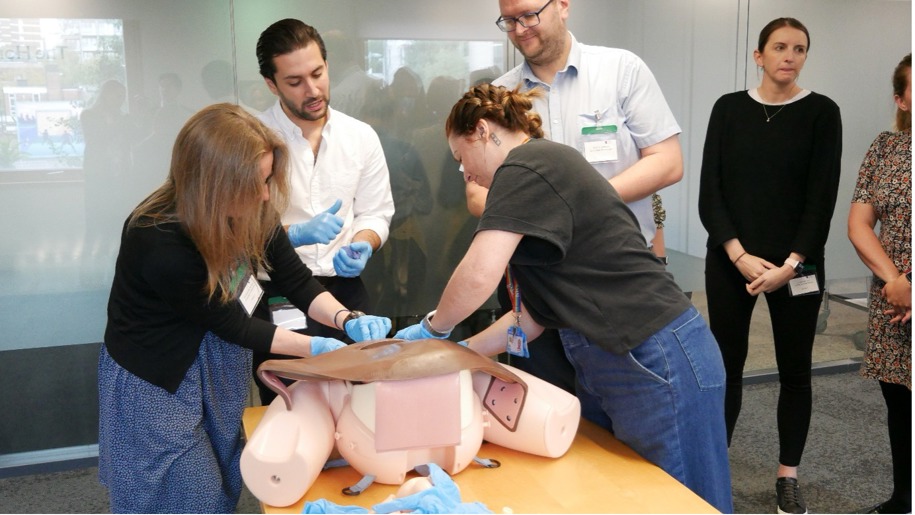Innovative quality improvement programme will support high quality, personalised maternity care to reduce risks associated with two significant contributors to avoidable brain injury
A pilot of the Avoiding Brain Injury in Childbirth (ABC) programme, delivered by the Royal College of Obstetricians and Gynaecologists, Royal College of Midwives and The Healthcare Improvement Studies (THIS) Institute at the University of Cambridge, has now successfully concluded, delivering a final report to inform national roll out and high quality resources, to the DHSC.
Brain injury acquired avoidably during perinatal care can have devastating consequences for babies and their families, along with significant lifetime costs for health and care services, including clinical negligence settlement costs.

Developed and piloted over three phases spanning 2021-2025, the ABC programme is designed to reduce the risks associated with two key contributors to preventable harm: managing impacted fetal head at caesarean birth and recognising and responding to the baby who may be deteriorating during labour.
Organised into two modules to address these two contributors to harm, ABC offers clear clinical practice standards and supporting resources, including high quality training. The whole programme was co-designed with maternity professionals and service users to enable best practice in care while communicating effectively and respectfully with the person in labour and their birth partner. An innovative model, where clinical champions from maternity units are trained how to train others, is used to spread good practice.
Six maternity units participated in train-the-trainer events for impacted fetal head, learning about the evidence base for the different techniques and practising how to use them using specially designed manikins, with a strong focus on team working and communicating with women and birth partners. The clinical champions from these units then trained their colleagues locally, meaning that dozens of staff were trained in under three months. An
independent evaluation by RAND Europe showed that both the train-the-trainer and the local events were very well received.
“The insights and pointers provided during our visit from the ABC team were invaluable. The guidance will help us improve our practices and strengthen our efforts in preventing brain injuries in childbirth. It was a privilege to learn from the team and their passion for this cause truly inspired us”.
–Shaye Morley, Midwifery Practice Educator at Liverpool Women’s Hospital
The ABC module on recognising and responding to suspected fetal deterioration operationalises current national guidance to integrate a range of intrapartum risk factors into a single standardised approach so that decision-making and action are supported more effectively, supported by a new tool and strong emphasis on teamwork and communication with those in labour. Six maternity units also participated in train-the-trainer events over two cycles of three units to learn how about this new approach. The clinical champions who were trained at these events then implemented the training locally within three months, again reaching a large number of staff quickly and effectively. The independent evaluation of the pilot identified improvements between the cycles and offered insights into how to implement the new approach in an area where current practices are often variable.

Involving women, birthing people and birth partners has been a defining feature of the ABC programme throughout. For the pilot, a specially established Maternity Patient and Public Involvement panel participated and fed into programme tools, resources and training. Their contributions were invaluable in ensuring that the priorities of maternity service users remain paramount.
The pilot has also developed a quality assurance framework, a data strategy, a strategy for digitising the ABC tool, a delivery and implementation strategy, and principles to guide a future evaluation of the national programme.
